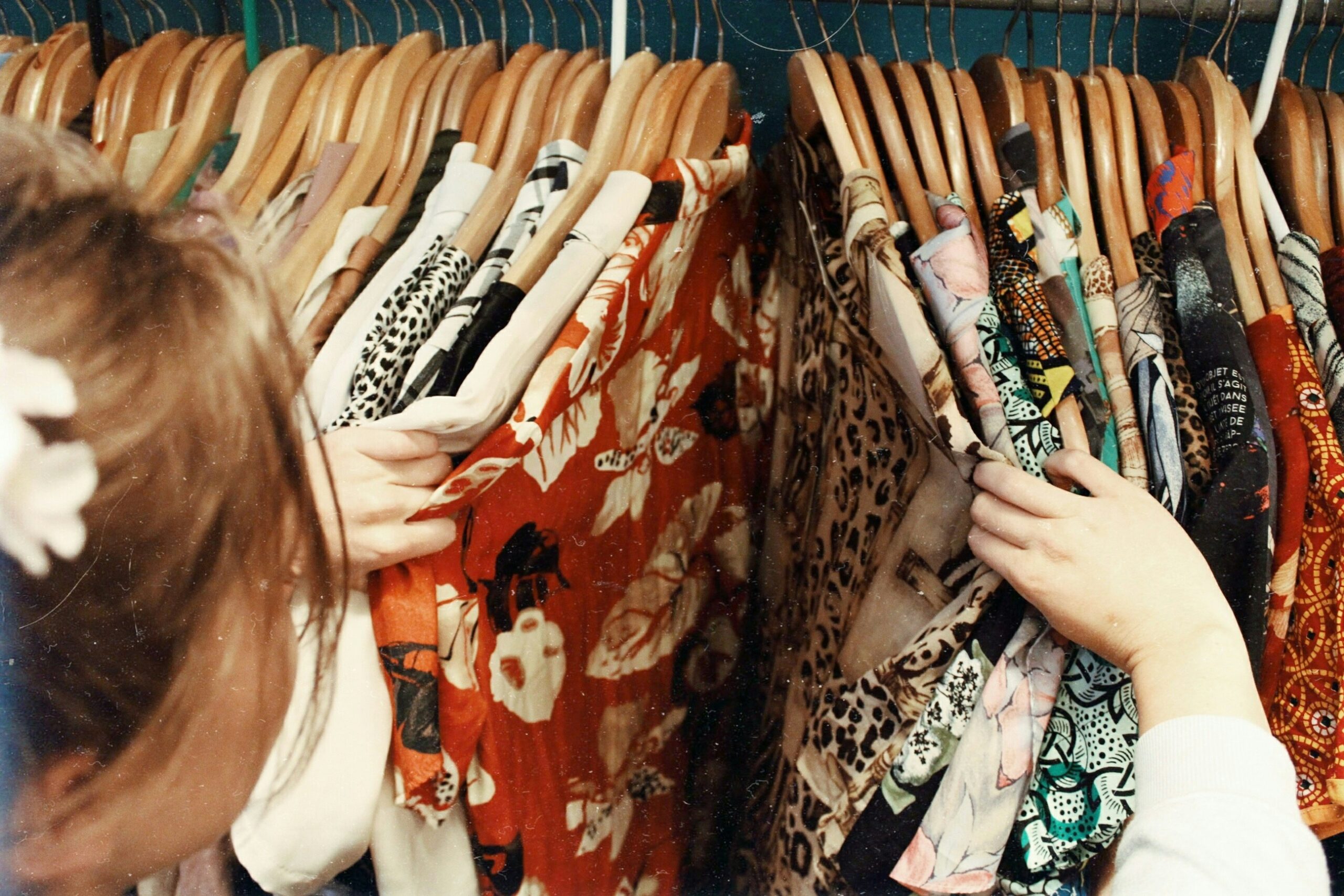When Saks Global announced its partnership with Amazon this week to open a new storefront on the long-fledgling Amazon Luxury Stores platform, the news was less notable than the timing.
It was inevitable that the e-commerce behemoth and department store chain would come together. After all, Amazon helped finance Saks Fifth Avenue’s $2.7 billion merger with Neiman Marcus Group, alongside Salesforce, Authentic Brands Group and the holders of $2.2 billion worth of bonds that the retailer issued in December.
But Saks revealed the news amid a barrage of headlines about its tumbling bond prices.
Since late April, the value of Saks’ bond has plummeted as the luxury industry grapples with the headwinds resulting from president Donald Trump’s aggressive trade policies. A day prior to its Amazon announcement, addressing the rapid depreciation of its bonds, Saks Global told investors that it’s exploring options to boost its liquidity, including the potential sale of some of its real estate assets and raising up to $350 million in new debt. The concerns around the viability of the business were not assuaged; Saks Global Enterprises’ bonds sank another 10 percent Tuesday, though it has since recovered from that dip. It now trades at about 62 cents on the dollar.
The fact that the bonds have lost more than a third of their value reflects falling confidence among investors that Saks would be able to make interest payments, the first of which is due at the end of June. In other words, the market has signalled that Saks is in a precarious cash situation.
On top of interest, the retailer has begun making payments to vendors as promised in a February letter to brands outlining a plan to pay back late and missed invoices over the last two years. Vendors with overdue payments from Saks can expect monthly checks starting in less than two months.
“We are actively managing liquidity with rigour to drive results,” Saks Global told The Business of Fashion in a written statement. “We have approximately $400 million of liquidity, and are working diligently to ensure we have the capital needed to meet our financial obligations, invest in our transformation and operate our business.”
But taking on further leverage is not a good sign for Saks — especially not in the form of what’s known as a “first in, last out” —aka FILO — loan, which is the specific type of financing that Saks is deliberating.
“A FILO is known as a last-ditch effort,” said David Tawil, president of Prochain Capital and an expert on distressed assets. “Whoever’s putting down the FILO, they’ll be the most sharp-elbowed lenders in the business, the best vultures around.”
Similar to a term loan, a FILO is typically drawn as part of an existing credit facility. In the case of Saks, its FILO would be structured within its $1.8 billion asset-based loan, or ABL, “meaning our ABL/FILO commitments remain capped at $1.8 billion,” the company said. “This will give us greater flexibility, without any incremental debt capacity.”
Whatever additional capital the company can procure will not address the other elephant in the room: Saks Global’s business performance. Theoretically, profits from sales — made greater by the economies of scale that come with a merger — would turn into cash flow that would then be used for interest payments and other costs. But since the Neiman Marcus acquisition closed, sales have softened.
“Fourth quarter 2024 performance at Saks Fifth Avenue was hampered by lower inventory levels, which we expect will continue to impact the first quarter of 2025,” the company said. “Neiman Marcus performance through holiday was strong, but the effects of the macroeconomic environment on the consumer is contributing to continued softness in the consolidated business.”
According to credit card data pulled by research firm Consumer Edge, sales at Saks Fifth Avenue have fallen double-digits every quarter since fall 2023. Neiman Marcus fared even worse, posting declines since the end of 2022.
Saks Global said its new storefront on Amazon will help it reach new customers. So far, only a handful of brands have agreed to be on the platform, including Dolce & Gabbana and Balmain. Allocating merchandise to Amazon also means fewer products for Saks to sell directly, not to mention it runs the risk of further alienating brand partners who have yet to come around to the idea of selling on Amazon.
With lagging sales, mounting interest payments and inventory orders coming due, Saks Global is not in a good place, to say the least. It’s unclear if its current selection on Amazon is alluring enough to move the needle for either the department store or Amazon, which has struggled to make headway in selling luxury apparel.
For now, it appears to be “lipstick on a pig,” said Tawil.
THE NEWS IN BRIEF
FASHION, BUSINESS AND THE ECONOMY

Prada posted industry-beating growth ahead of its Versace acquisition. The Milanese fashion conglomerate’s first-quarter revenues rose 13 percent year on year to €1.34 billion ($1.52 billion). Sales were flat at flagship brand Prada while Miu Miu’s sales soared 60 percent.
Burberry has begun looking for its next chairman. The British luxury brand is evaluating potential candidates to succeed Gerry Murphy as chairman, though Murphy is not expected to step down this year and the exact timing of his departure has not been formally decided. The news comes as Burberry got a buy rating from Citi for the first time in 17 years.
Adidas said Trump tariffs “put a stop” to a boost in targets. After generating better-than-expected first-quarter profits, the German sportswear brand didn’t raise its financial outlook for the year over uncertainty around US President Trump’s tariffs. Following the news, Adidas shares remained largely unchanged in early German trading.
G-Star Raw named the designers of Botter co-creative directors. Rushemy Botter and Lisi Herrebrugh will reintroduce the Dutch denim brand’s upscale “Raw Research” line in January during Paris Fashion Week and influence G-Star’s main menswear and womenswear collections.
Etsy topped quarterly revenue estimates on steady demand for apparel and gifts. The online marketplace which owns resale apparel platform Depop reported quarterly revenue rose about 1 percent to $651.2 million, surpassing analyst expectations of $642.7 million.
Trump’s tariffs prompted a slump in shipments to US ports. The number of vessels scheduled to arrive at the Port of Los Angeles next week is down by almost a third year on year.
Chinese e-commerce exports plummeted in the face of tariffs, despite a rise in sales to the EU. Amid reports that Shein is considering a restructuring of its US operations to circumnavigate tariffs, exports to the US from Chinese online shops such as Shein and Temu have plunged. Total e-commerce shipping dropped 65 percent by volume in the first quarter but rose 28 percent in Europe.
Nike is forming a new team for its secretive brand with Kim Kardashian. The US sportswear brand is assembling a team of executives and designers to operate its new brand with the entrepreneur and reality TV star’s apparel label Skims, and plans to release its first NikeSkims womenswear collection this spring.
Shein is weighing a US restructuring as tariff risks cloud its London IPO. The fast-fashion retailer is considering restructuring its US operations, including shifting production for the US market to countries outside China, as the “de minimis” tax exemption ends.
Primark is committed to US expansion despite tariff uncertainty. Associated British Foods chief executive George Weston said its subsidiary fast-fashion retail company Primark is committed to expanding its US store count from the current 29 to 60 stores by 2026.
Textile recycler Eeden raised €18 million. The German recycling startup said Tuesday it had raised an €18 Million ($20.4 million) Series A round to fund construction of a demonstration plant in hopes of commercialising its textile-to-textile recycling process.
Alibaba co-founder Jack Ma was implicated in an intimidation campaign by the Chinese regime. Ma was enlisted by the Chinese government to pressure a businessman to help in the purge of a top official.
THE BUSINESS OF BEAUTY

Il Makiage’s parent company raised its full-year outlook. Oddity Tech, which owns Il Makiage and Spoiled Child, announced Tuesday that it had raised its full-year outlook after posting a 27 percent year-over-year rise in first-quarter revenue with earnings of $268 million. Both Il Makiage and Spoiled Child posted double-digit revenue growth.
Estée Lauder’s sales slid 10 percent. The US cosmetics giant forecast a bigger-than-expected drop in fiscal 2025 sales, indicating a slow down in the American market. Estée Lauder has been struggling to revive dwindling demand, mainly in China and Asia, for the last couple of years.
Puig posted an 8 percent rise in first-quarter sales. The Barcelona-based company behind perfume brands Carolina Herrera, Rabanne and Jean Paul Gaultier reported €1.21 billion ($1.38 billion) in sales during the first three months of the year, beating analyst expectations.
Unilever will shutter its Ren skincare business. The consumer goods company that produces Dove soap and Vaseline cited internal challenges that were exacerbated by market conditions as reasons for the Ren shutdown, which has no fixed date. The brand is expected to stop trading by the end of the 2025 third quarter.
Caroline Hirons’ Skin Rocks landed its first growth investment. The UK-based skincare brand has received a growth investment led by firms Redrice Ventures and Jamjar Investments to fund its international expansion and the development of its professional line. A spokesperson said the brand has generated over £10 million ($13 million) in net revenue since launching in 2022.
Freck Beauty founder Remi Brixton sold the brand and stepped down. The Sephora-stocked brand that rose to prominence for its viral freckle pen has been sold to an undisclosed group of owners, while Nameless CPG will operate Freck Beauty.
Chanel closed its NYC beauty concept boutique. Chanel’s Atelier Beauté Chanel has permanently closed six years after opening in New York City’s Soho. The location had offered beauty sampling as well as makeup services and consultations for skincare and fragrance.
PEOPLE

Louis Vuitton named Pierre Castillon its VP of communications, strategic planning and digital. Castillon will report to Blake Harrop, Louis Vuitton’s executive vice president of image and communications. Prior to his promotion to the newly created role, Castillon was Louis Vuitton’s global head of digital media for six years.
Harper’s Bazaar Italia named new creative directors. The Hearst publication has appointed Michael Amzalag and Mathias Augustyniak, the founders of design studio M/M, its new creative directors. The duo has worked with publications like Vogue France and Man About Town, and with brands including Yohji Yamamoto and Jil Sander.
MEDIA AND TECHNOLOGY

Ari Emanuel acquired the Frieze art group from Endeavor. The Hollywood super agent agreed to buy the contemporary art organisation from Endeavor Group Holdings, Inc. in a deal which reportedly values Frieze at nearly $200 million. Frieze CEO Simon Fox will remain in his current role.
Allure Magazine launched a Philippines edition. The Condé Nast-owned beauty publication is expanding its global footprint with the launch of its second foray into Asia following its Korean edition. The new edition will be led by Rissa Mananquil Trillo, a beauty industry veteran and founder of Filipina-focussed skincare brand Happy Skin.
Family Style launches a zine for Gen-Z. The independent magazine, which styles itself as a curated dinner party bringing tastemakers across culture together in its pages, is looking to expand its consumer base to Gen-Z with the launch of Takeaway.
Compiled by Jessica Kwon.



:max_bytes(150000):strip_icc():format(jpeg)/TAL-lead-image-CAIRNGORMSNP0425-3adff595e465441193d0e752a96069e8.jpg?w=150&resize=150,150&ssl=1)




